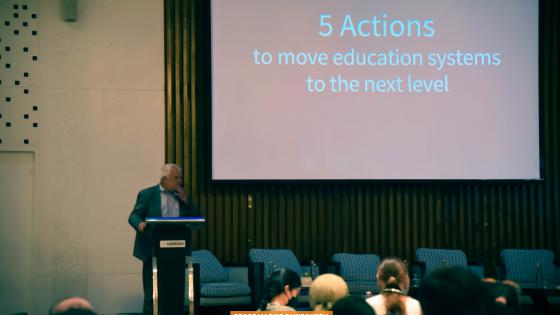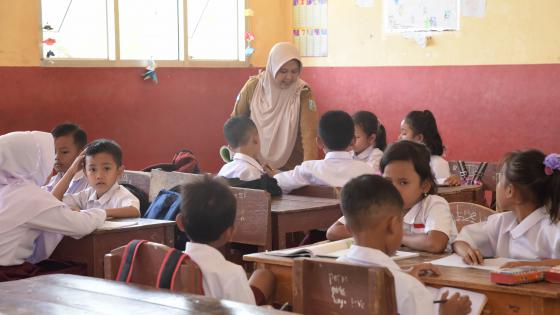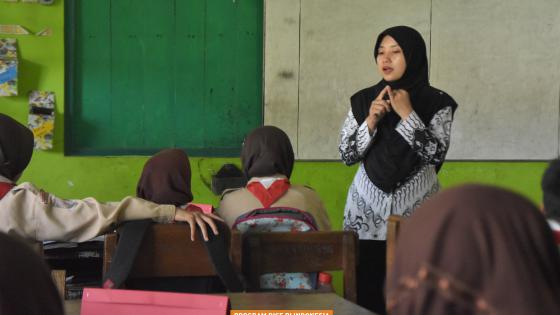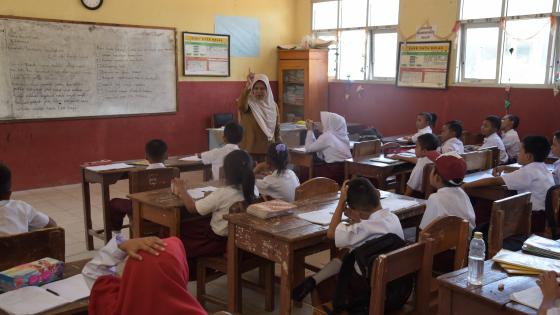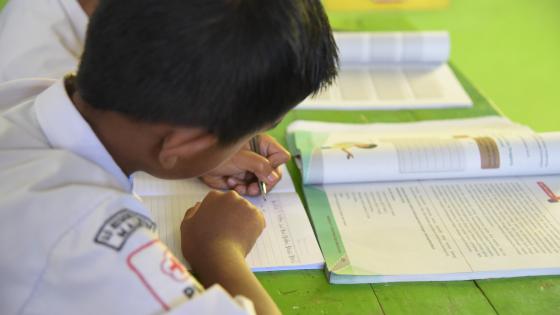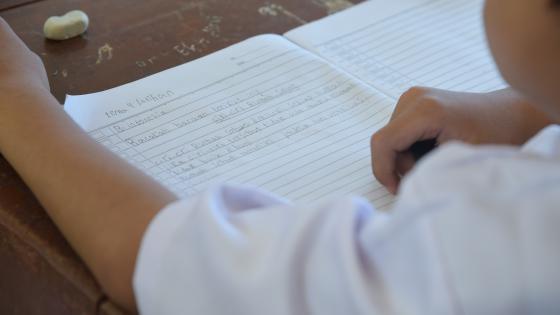Photo illustration: Goldy F. Dharmawan
This article is part of the Teacher's Note series on the arduous process of finding a teaching job.
In my initial journey as a teacher, I never applied for a job. A school approached me instead.
During the fasting month of Ramadan in 2015, I was occupied with preparations nearing the end of my study at the university, including some research. I was distributing forms to schools around the Cempaka Putih area in Jakarta when my phone rang. I did not recognise the number on my phone so, at first, I ignored it.
But my phone kept ringing so I picked it up. A woman on the other end of the phone mentioned my name and asked whether she was calling the right person, a student of a primary school teacher study programme at a university in Jakarta. I was shocked, how did she know such information?
So I asked why she contacted me. The woman asked me to come by at the school where she taught. For sure, I was baffled as I never sent any job application to the rather reputable school in East Jakarta. But I also did not want to waste the opportunity, so I said I would come the next day.
The next day, I went to the school and met the woman who called me. As it turned out, she was the principal of the school. We talked quite long about education, including the hot topic among teachers: the new curriculum at the time, the so-called K-13. After the conversation, she challenged me to perform micro-teaching. I accepted the challenge, and we agreed to do it on the students’ first day of school after the holidays.
Several weeks later, I went back to the school bringing many teaching media for micro-teaching. I brought materials for teaching two-dimensional shapes using chopsticks and modelling clay. I began the teaching session with an introduction and ice-breaking session with the students. It was delightful. Three observers, including the principal, the homeroom teacher, and a representative from the school's foundation, were there in the classroom to watch me teach.
After I was done with micro-teaching, I was invited for an evaluation. Three observers gave me positive reviews. That day, I was immediately hired as a teacher at the primary school.
Around two months later, I was named staff for the curriculum department with a focus on character development. I received outstanding assessments from the foundation, the chairperson, and parents, which resulted in the doubling of my salary. It happened again during my second and third years working at the school.
In the third year, I intended to improve my ability by signing up for the Teacher Professional Education (PPG) Programme. After passing the selection process, I was accepted into the programme. Due to its tight schedule, I had to resign from the school. For the next ten months, I focused on PPG and I completed it on time.
After officially receiving my title as a professional teacher, I ventured myself to participate in the civil servant selection (CPNS). I took a long time to prepare for the test. I thought it would be better to study in a group, so I made a study group consisted of seven people. Every Saturday and Sunday, we gathered to discuss potential questions. The members of our study group kept growing until eighteen people. We were solid and serious in preparing for the CPNS test.
We all passed the first stage of the test, which was the online basic competence test. We became more eager to study, preparing for the second test. In the end, only fourteen of us passed, one of them was me.
Now, I am a CPNS teacher assigned in a public primary school in East Jakarta.
I might be one of the luckiest people in this world.
It remains a mystery until today who recommended me to the school principal at my first job.
*This Note was written by WI, a primary school teacher in the capital city of Jakarta.
**All articles published in the Teacher's Notes are the views of the authors. They have been edited for popular writing purposes and do not represent the views of RISE Programme in Indonesia or RISE's funders.


